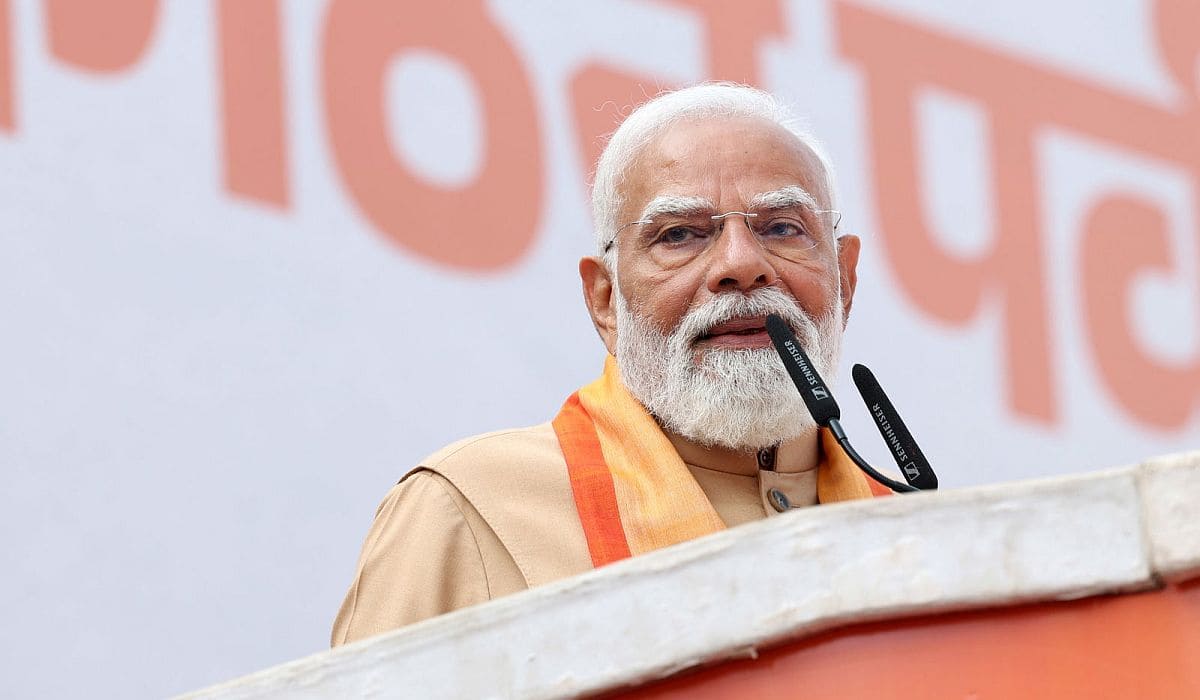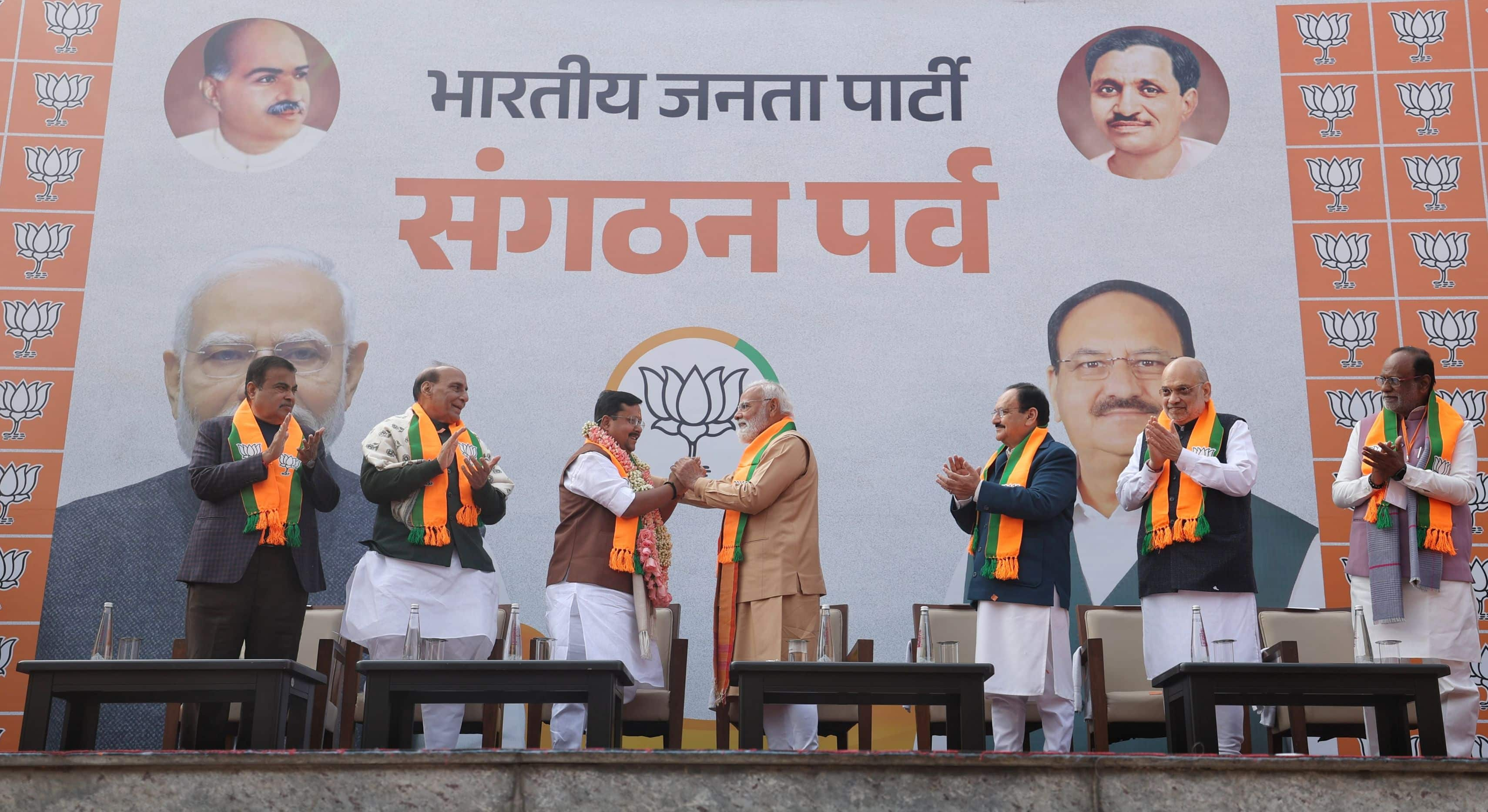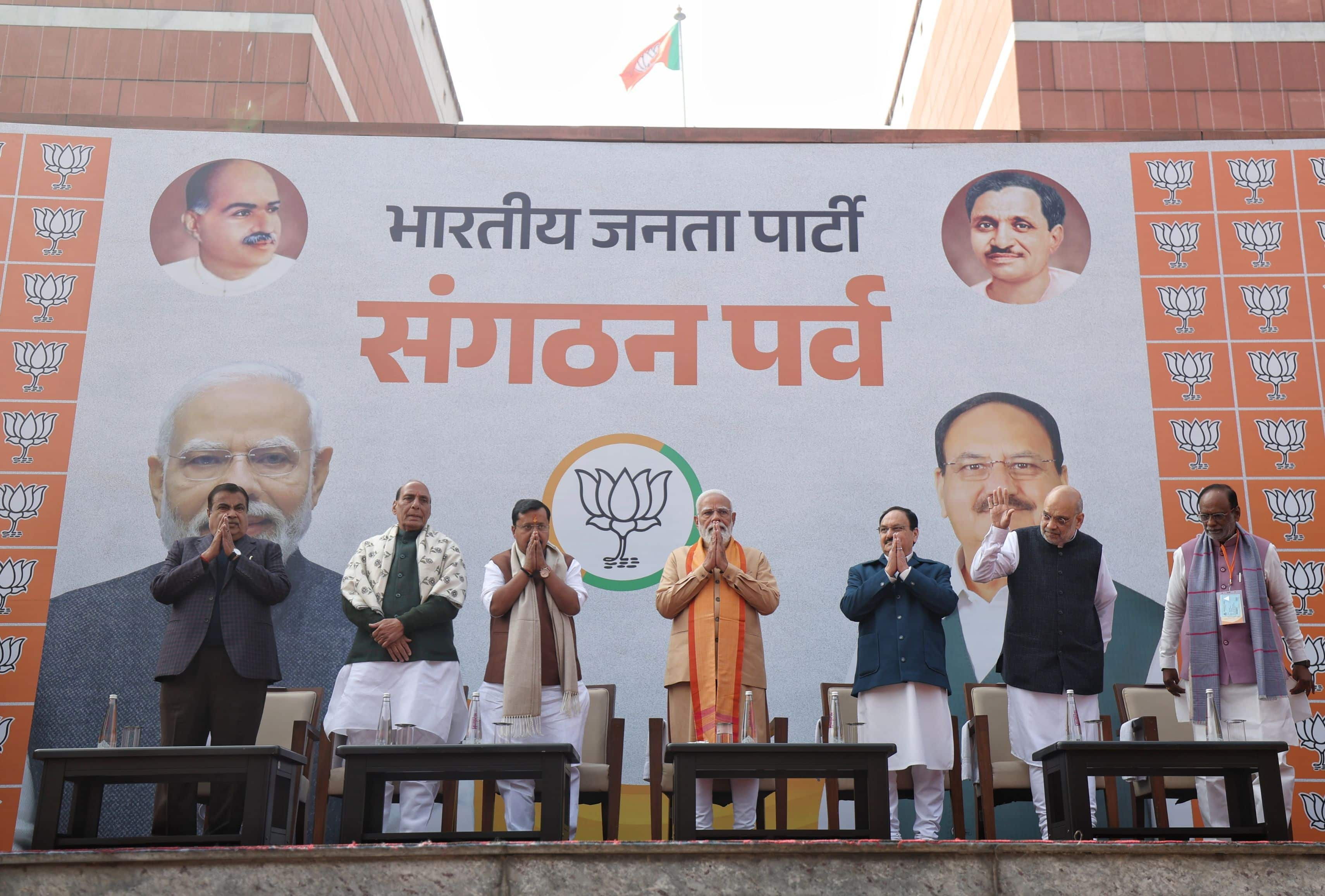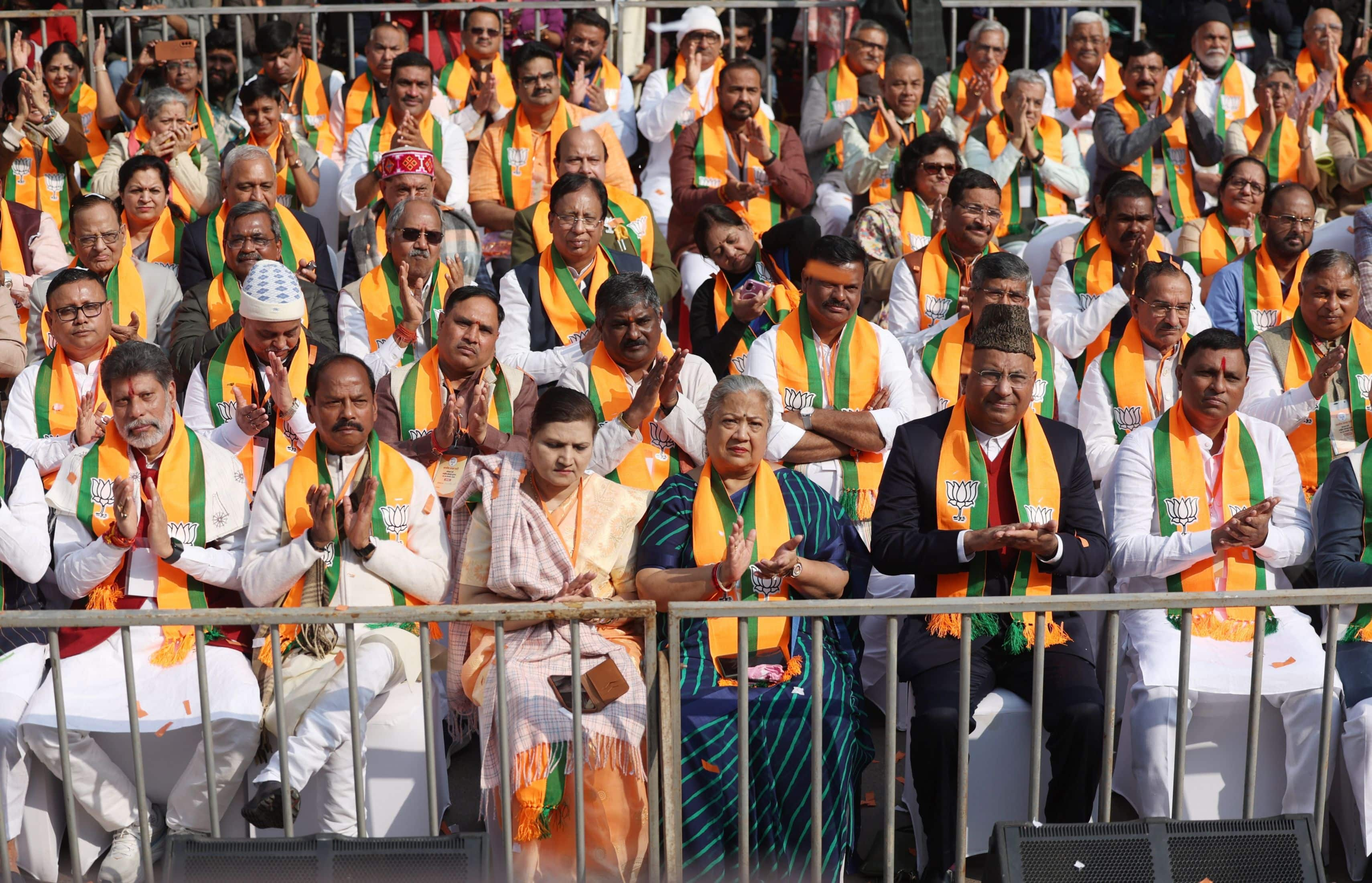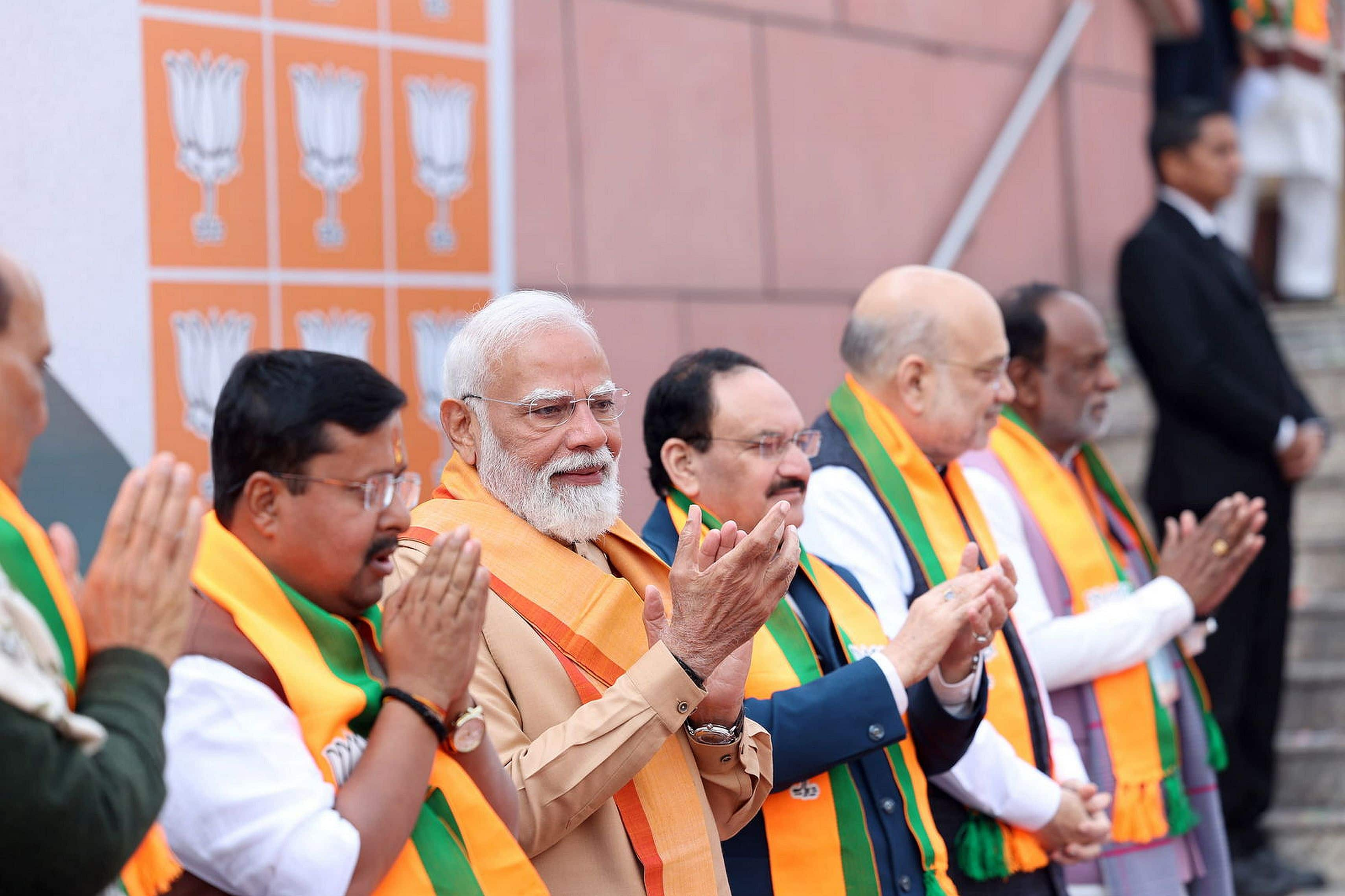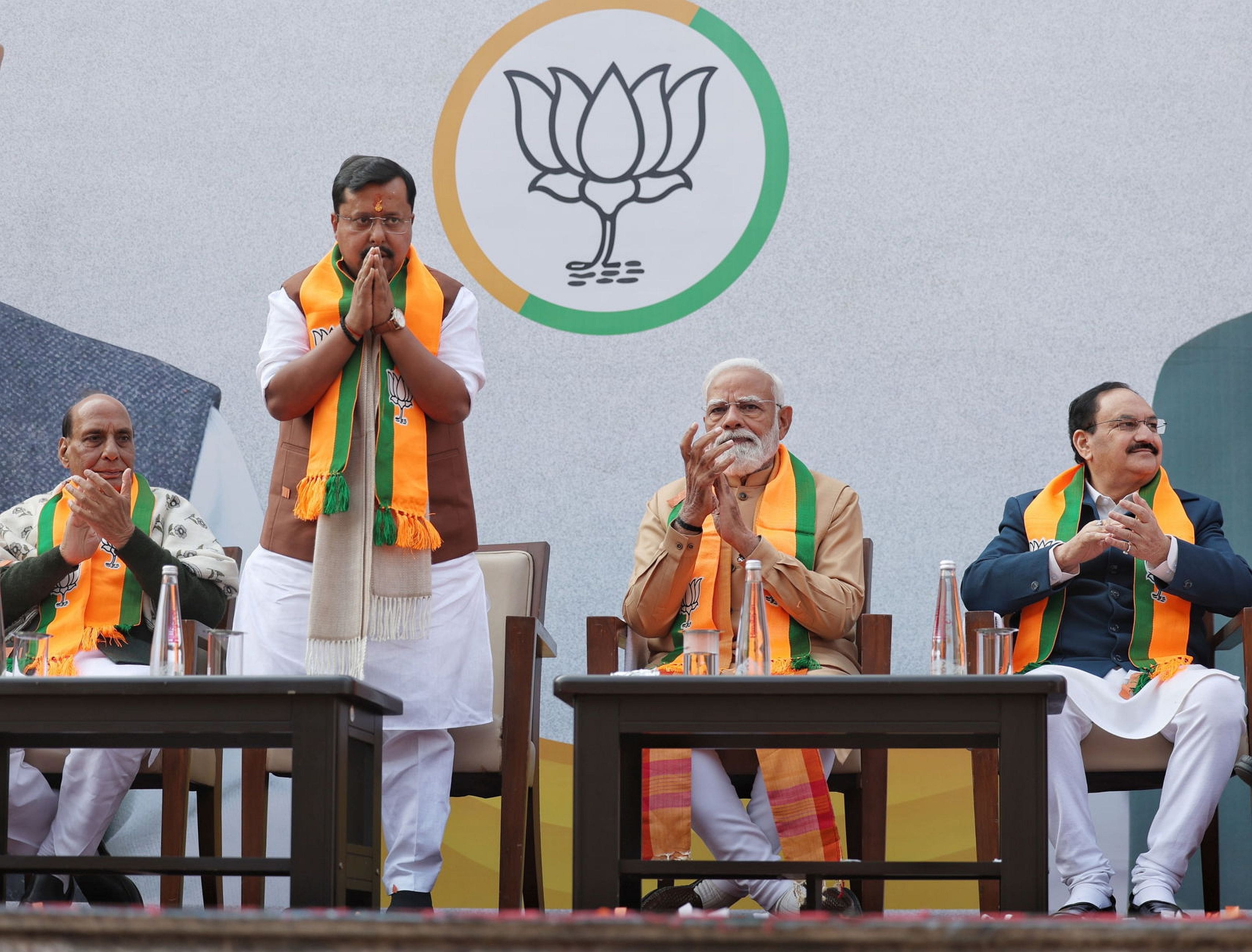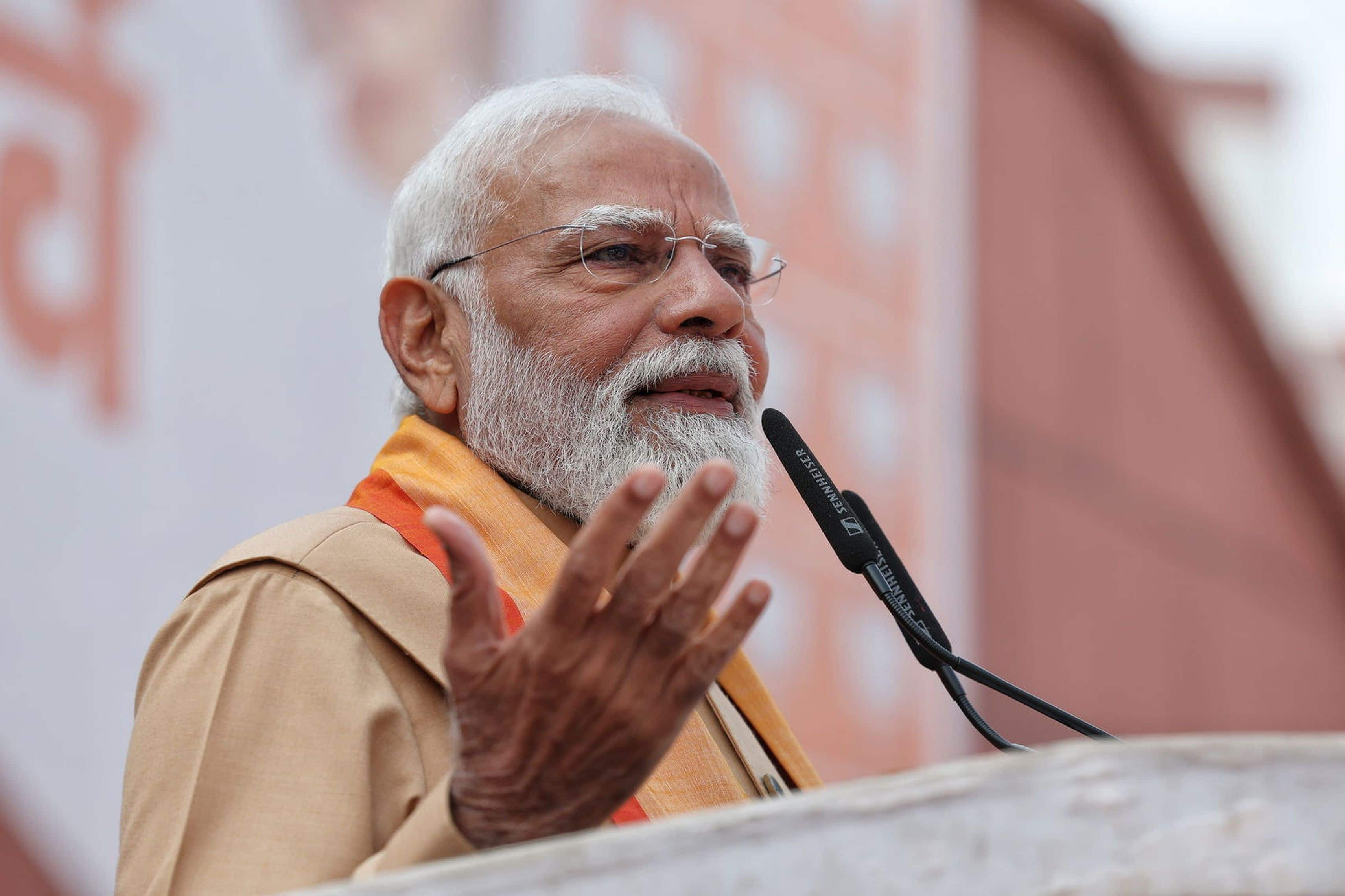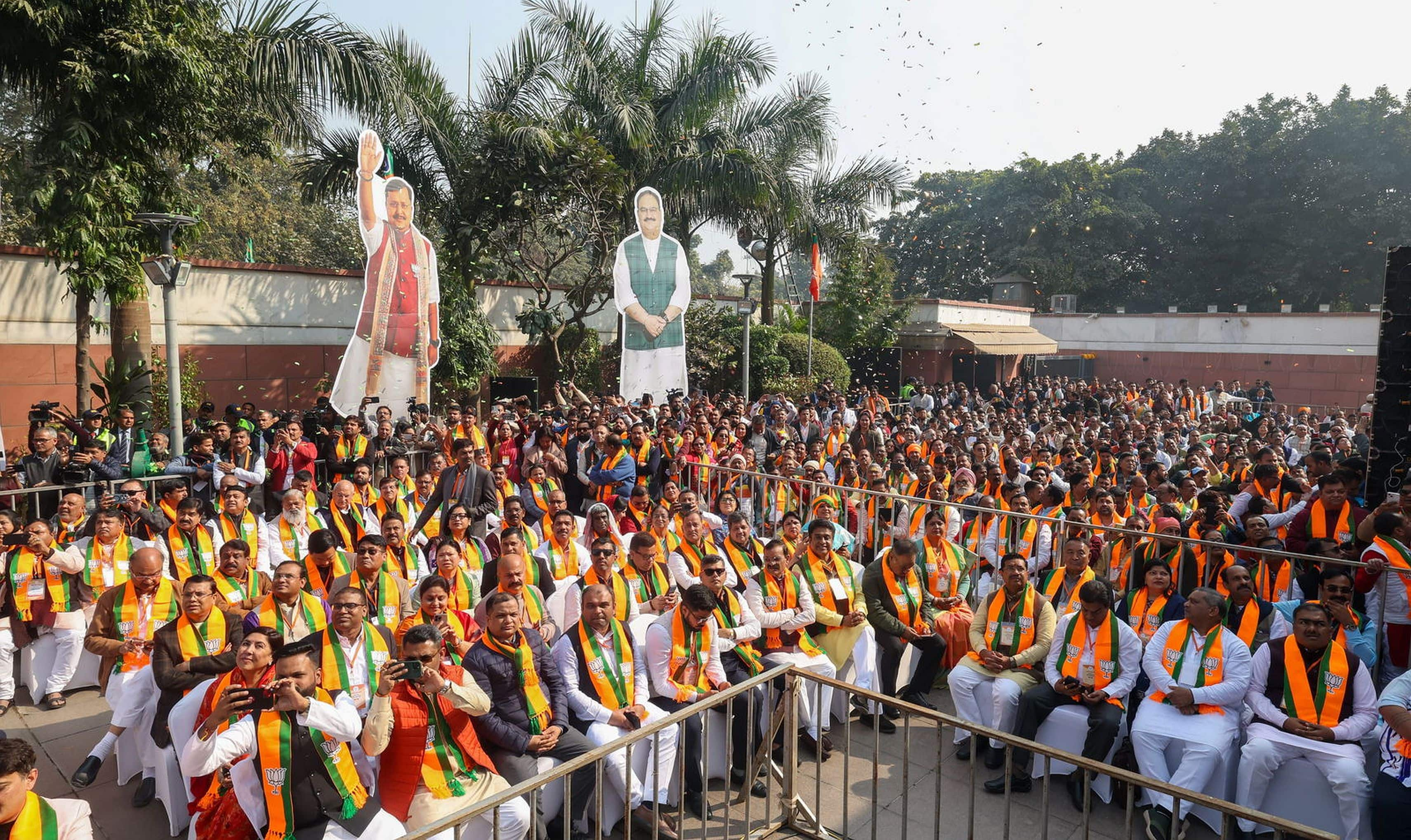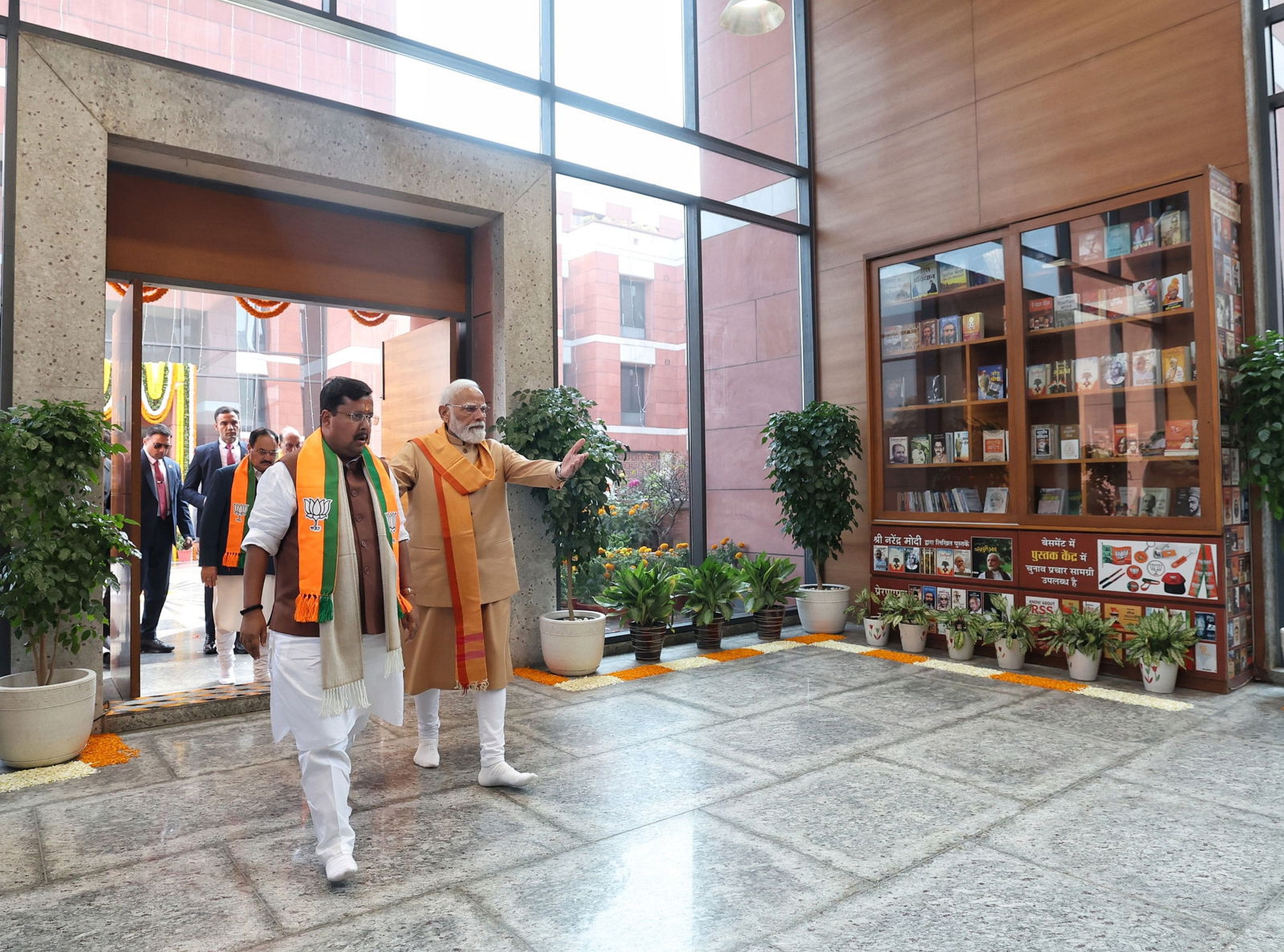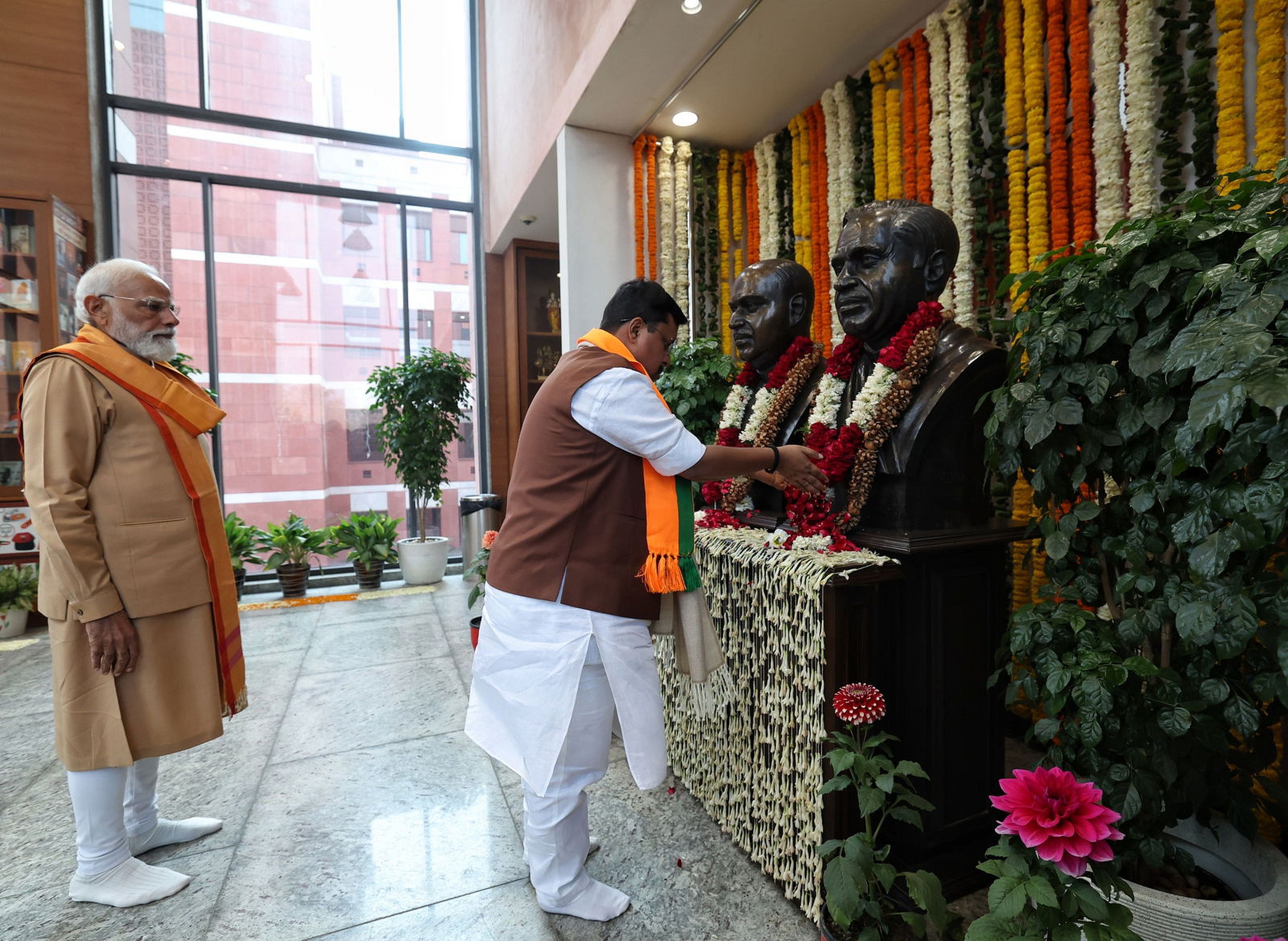Place : Ahmedabad Speech Date : 21-12-2010
- The underlying spirit is that of a mother-son relationship between human beings and earth.
- Climate Change need not be fallout of development but can also be due to development deficit.
- I firmly believe that the present generation should act as trustees of the wealth of nature.
- I have documented some simple things which we did that resulted in miraculous outcomes.
- We also need to look at developing special Climate Change models for coastal Gujarat. There is also need to create awareness, educate and inform people.
- I have named my book ‘Convenient Action'. The purpose is to adapt to and mitigate Climate Change impacts; the convenient action is to achieve that.
His Excellency, Dr. A.P.J. Abdul Kalam, IPCC Chairman and Director of TERI, Dr. R.K.Pachauri, Shri. Rajiv Beri and Shri Sanjay Singh from Macmillan Publishers, guests, ladies and gentlemen,
At the very outset, I would like to share with you what inspired me to write this book and my development philosophy. I have always believed in the complementary relationship between human beings and nature. This has been sufficiently stressed in our Vedic literature, particularly the Atharva Veda. Even Panchatantra contains stories about the symbiotic relationship in existence.
The sixty-three Suktas of Prithvi Sukta, which you just heard, were composed thousands of years ago. These contain a whole spectrum of knowledge on sustainable development. The underlying spirit is that of a mother-son relationship between human beings and earth. The sustainable use of natural resources has therefore been consistently advocated in all ancient scriptures.
My views were also inspired by Mahatma Gandhi's concept of trusteeship. He said that wealth belongs to the community and must be used for the welfare of the community. We should apply this concept of trusteeship in the context of Climate Change. There is a saying that the earth is not what we inherited from our ancestors but what we have borrowed from our future generations. I firmly believe that the present generation should act as trustees of the wealth of nature. We should use it in a sustainable way so that it can be enjoyed by future generations also. We should be concerned about future generations. However, at the same time we should also be concerned about the poor and downtrodden who are worst affected by climate shocks and extreme weather conditions.
We cannot sacrifice tomorrow for the sake of today. At the same time, we cannot also sacrifice the today of millions of people for the sake of a better tomorrow. There is a need to strike balance. People don't have potable drinking water. Rural areas do not have regular power supply. Every day the poor face a grinding plight. Hence, the need is to address inter-generational as well as intra-generational equity. Climate Change need not be fallout of development but can also be due to development deficit. Hence, ethics and equity are at the core of the debate on Climate Change. So I feel that the debate has to move from Climate Change to Climate Justice by imparting a moral dimension to this discourse. In whatever I have conceptualized, planned and implemented, Climate Justice has been a guiding light and inspiration.

Climate change is a reality. The global environmental crisis points clearly to the inconvenient truth of our planet at risk. When confronted with inconvenient truth, the very act of seeing the truth should result in appropriate action. Seeing is not only believing, but as J. Krishnamurti says, seeing is also acting. The global environmental truth is upon us and it is time we act.
I have named my book ‘Convenient Action'.
The dictionary meaning of the word ‘convenient' is twofold. One suited to one's comfort and the other to one's purpose. The purpose is to adapt to and mitigate Climate Change impacts; the convenient action is to achieve that. It is not about my comfort or yours but the comfort or the fate of future generations. What is right and what is convenient depends on the purpose and intent. When you think of the future generation and their welfare, even difficult actions become easy and no action can be inconvenient.
So much for philosophy. Now what is the practical action?
A few years ago, I used to read a lot of debates on Climate Change, whether or not it was really happening. I have been aware of such behind-the-screen lobbying by vested interests that normally accompany any such carefully managed campaigns. But even in those days of uncertainty and confusion, I based my developmental policy on the harmonious relationship between man and nature. This helped to choose a path that would empower the poor in a way that would make sustainable use of the bounties of nature.
This book, therefore, is a humble attempt to document the initiatives and innovations we have undertaken during the past few years in Gujarat to adapt to and mitigate the impacts of Climate Change. While adaptation is more in the form of damage control, mitigation has to be an important component of Climate Change. The various projects and efforts undertaken, discussed in this book will show that we have kept constant emphasis on mitigation. Without waiting for nations and policies and regulations we have acted on our own. This has been done using our own resources and limited legal frameworks.
There is a saying that a journey of thousand miles begins with the first step. All of you know that Gujarat is the first state in the country to set up a separate department for Climate Change, perhaps the first provincial government in the entire world to have shown such foresight. Several initiatives were undertaken before and after setting up of the department. I thought it necessary to document it and stakeholders know what has been done here. This book is also an invitation. An invitation to scholars, researcher, scientists and policy makers to visit Gujarat and see what has been done here. It would be heartwarming if our initiatives help others in innovating and improving upon what we had done.
UN Secretary General, Ban Ki Moon, got a very strong case of action prepared and published in Human Development Report, 2007, for fighting Climate Change. He has made a very timely plea, indeed for governments, institutions and stakeholders the world over. My attempt to prepare this collection of actions taken so far is only an extension of this plea. This book is not just about facts, figures and numbers. What is important is the feeling and thought process behind these. This, I hope will inspire all those concerned. I hope this will also assure everyone that within a democratic framework, despite electoral constraints, things can happen if there is political will.
I am neither an expert on Climate Change, nor a professional writer. I have written what I have felt from the core of my heart. Climate Change and global warming are subjects of huge dimension. The whole world is debating the same. But have these discussions compelled us to act? We can have conferences after conferences. But I think one simple action is better than a million good intentions. My book documents such simple actions. They may be small in the global scale of what needs to be done. Nevertheless, they show a path to a better way of living.
I have documented some simple things which we did that resulted in miraculous outcomes. I am not going to discuss the content of the book in detail. But I will give you just one example of a simple thing we did that resulted in transformation of lives. We took steps for conservation of water, addition to ground water resources and stopping reckless exploitation of ground water. We used surface water, made it potable and made it available to the water scarce areas. This improved health in rural areas and also stopped the disgrace of running after water tankers. Money and fuel were saved. We constructed check dams, ket talvadis, boribunds, water conservation structures to raise the level of water table. We encouraged drip irrigation, micro irrigation and interconnecting rivers. There is no rocket science involved here. Anybody could have done it. The question is why nobody did it.
The bottom line is that these are not mere government-driven projects. Public participation and people's ownership are the cornerstones. This is what I tried to convey from my experience. Clean and green Gujarat is part of the Swarnim Gujarat celebrations. Millions of men and women, young and old, took golden vows to protect the environment and to create a clean and green Gujarat. When people join hands, initiatives benefit all.
Climate discussion has become an integral part of International debate. It is discussed in gatherings of developed and developing countries- G8 meetings, Davos Economic forum and many other forums. But no overall consensus is emerging for reduction in emission. Copenhagen, despite all pomp and show, failed to become Hopenhagen. And Cancun very recently also fell short of expectations. Given the constraints of politics, internationally binding outcomes may get delayed. But time is fast running out. With each passing day, month, year and decade, the ecological debt of future generations is increasing. In such a complex situation, regions and states in democracies have significant role to play. I, in fact, wrote twice to the Prime Minister on need for consulting state governments. Gujarat model could well serve as an example to decision makers across all political spectrums in the World.
Many things have been done here, both big and small. I know much remains to be done. This book is not to claim that everything has been done but is an invitation to people and experts to tell us what more could be done or how things can be done in a better way. There is much to be done in terms of developing special carbon budgeting for growing cities and changing urban life styles. We also need to look at developing special Climate Change models for coastal Gujarat. There is also need to create awareness, educate and inform people. For this we welcome any help, technical and financial cooperation from individuals and institutions.
Former Vice- President of America, Al Gore was right when he commented a few years ago that it was inconvenient for many leaders to hear, face and accept the naked truth of global warming. But the real test of leadership is in accepting this truth and in devising and implementing a strategy that results in what I call “decisive, appropriate, timely and Convenient Action”. Therefore, I urge everyone not to let this ecological debt be transferred to the future generation, and keep Climate Justice in mind in all our actions. Environmental concerns are not new. It has been said that every generation has its great work. It is for the present generation to act decisively and protect Mother Nature. May this book help the coming generations to find a better World to live!
I am deeply indebted to His Excellency, Dr. Kalam, and Dr. Pachauri to have graced the occasion today. I am also thankful to my publisher, Macmillan publishers, for the high quality printing and for the organization of this event. My special thanks to Mr. Steve Howard, CEO, The Climate Group, UK, for writing the foreword to my book and for his kind words of appreciation. I thank all other guests who have assembled here to appreciate the importance of this subject. I also thank the people of Gujarat who have participated in this journey to respond to the challenges of Climate Change.






